
sustainability initiatives
contributing to a responsible food system
Our dining team strives every day to create a responsible dining program. From working to minimize waste, support local partners with responsible sourcing, and creating green dining facilities, we are always looking for new ways to care for our world through a sustainable food system.
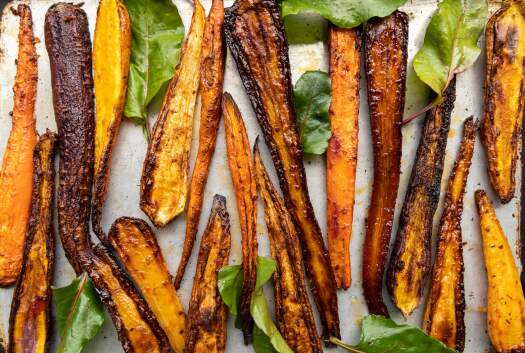
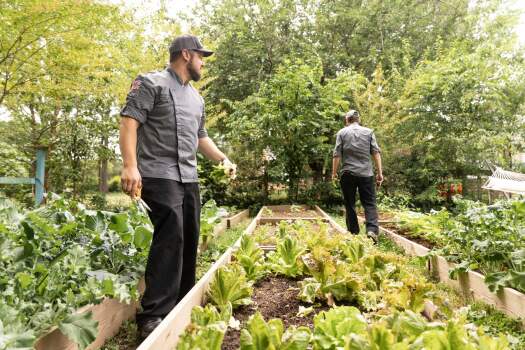
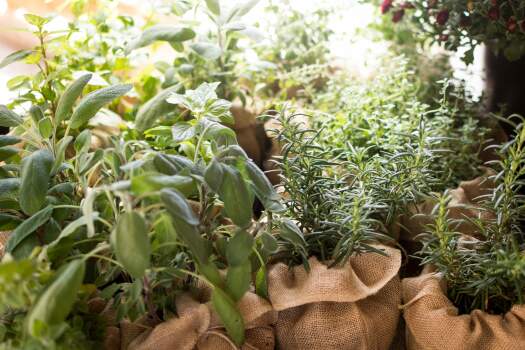
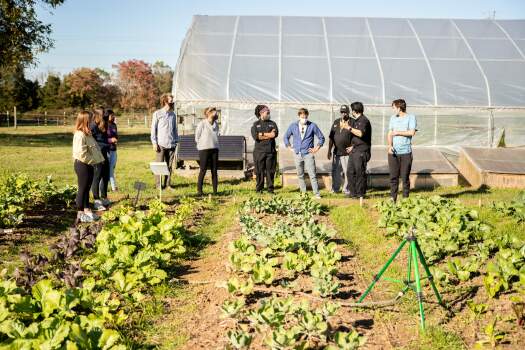
responsible sourcing
Our chefs work closely with local food systems to source your food responsibly. To us, sustainable food means plant-based ingredients sourced from local and community-based vendors that are 3rd party certified as having been sustainably or responsibly produced and distributed.
Since 2020, we are proud to say we have increased our local spend from 24% to 50%, and we're just getting started!
Our team is passionate about incorporating local, seasonal ingredients into our menus as much as possible. Elon Dining has implemented a preferential purchasing system that identifies food grown or produced within 150 miles or within the state of North Carolina as well as its sustainable attributes. Local produce is harvested closest to its peak for a fresher, more flavorful nutrient-filled result. Not only do local foods tend to be fresher, local purchasing also reduces transportation carbon emissions and invests money into community-based operations. Look for locally grown signage to taste the best flavors our area has to offer, celebrate the seasonal selections as well as support the efforts of our local community! We even source some of our produce from our own backyard at Elon’s Loy Farm.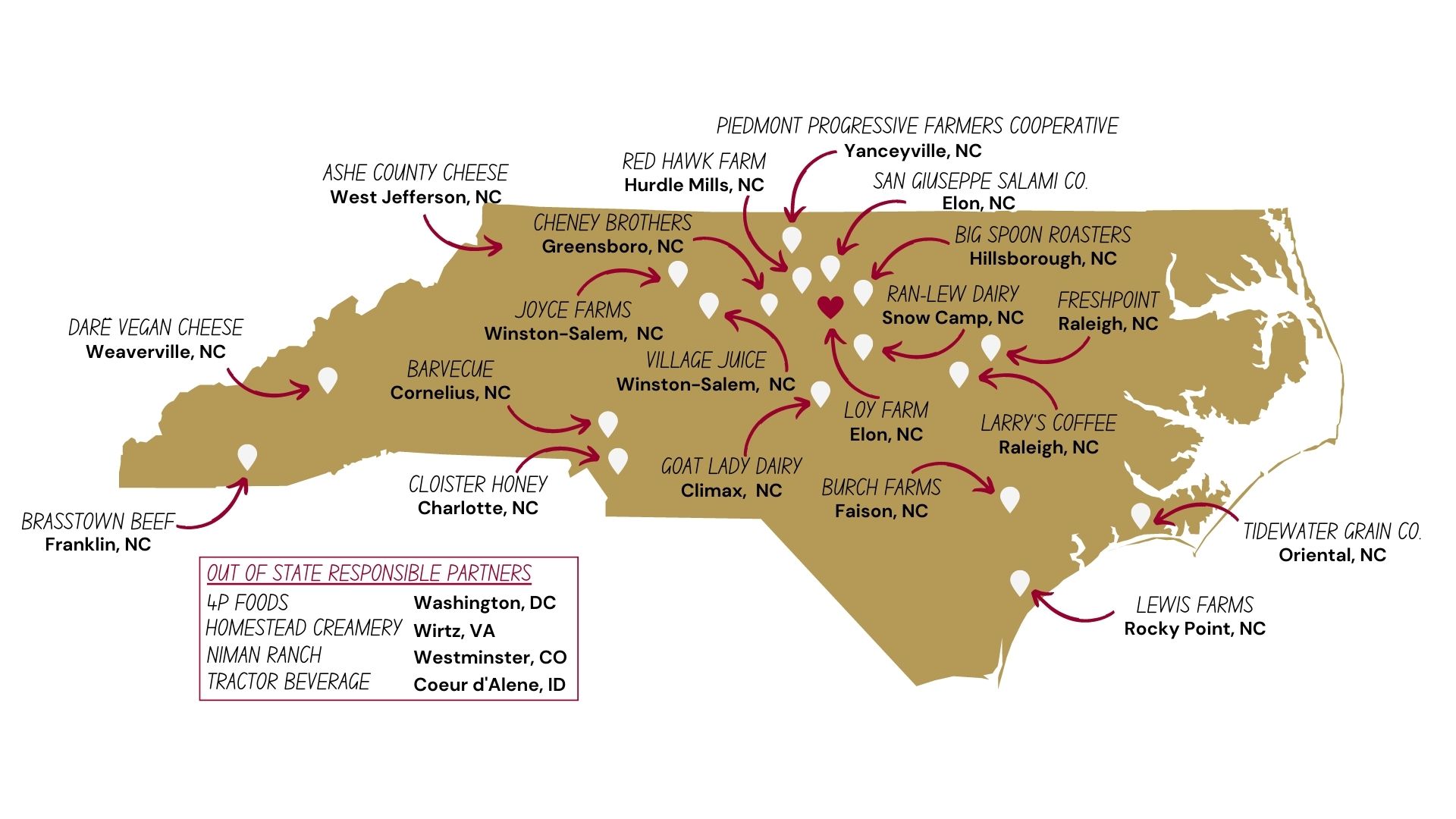
Plant-based foods (vegetables, whole grains, beans, etc) are proven to have a lower environmental impact than resource-intensive animal products. Through continuous recipe development emphasizing new, vibrant, and unique plant-based options, Elon Dining provides diverse, complete-protein vegan dining options and plant-forward meals at all meal services. McEwen Food Hall, Lakeside Dining Hall, Clohan Hall, and a number of our retail locations have menus dedicated to plant-based options.
Our livestock farmers and ranchers share our high standards for humane animal treatment and environmental sustainability. We source beef, pork, chicken, milk, eggs, and turkey from North Carolina farms using regenerative agriculture principles, and certified animal welfare practices. All meats are free of antibiotics, growth hormones, and are fed vegetarian diets.
Committing to Coolfood means reducing our greenhouse gas emissions associated with food purchasing by at least 25% by 2030. Coolfood Meals have a carbon footprint that falls below an established per-meal threshold that meals should meet by 2030. Elon Dining is working with the World Resource Institute to implement the Coolfood Meal badge on our menus to highlight these climate friendly dishes for discerning diners.
Fair Trade coffee is served in all residential, retail, and catering dining operations. Elon Dining Services recognizes the need for social and environmental responsibility towards farm workers, our customers, and our communities. Benefits of these programs for coffee farmers mean community development, health, education, and environmental stewardship. All three residential locations serve locally roasted Larry’s Coffee, which is certified organic, shade grown, and Kosher, in addition to being Fair Trade certified!
One way to prevent food waste when you’re in the dining halls is to ask to “just try it!” Not sure if you’re going to like something, or you want a smaller portion of what we’re serving? Ask the server to “just try it” and they will serve you a small portion! Remember, you can always go back for more. This way, we can help prevent wasting extra food on our plates.
our operations
Sustainable practices extend to our facilities, where our team members work to ensure that daily operations contribute to a healthy environment.
All three of our dining halls, Catering, Winter Garden, Fountain Market and Boar’s Head Deli are Green Restaurant Association certified. This is meeting efficiency standards in water conservation, waste reduction, sustainable food, and pollution reduction.
The most important step to prevent food waste happens before our ingredients even reach our kitchens: matching food production to food consumption. Our kitchens use Leanpath devices to track our pre-consumer waste including our trim waste, expired products, and overproduction. We utilize the data to set goals to reduce our food waste targeting which products, meals, and reasons for waste that the data points out as areas of opportunity for reduction.
In all dining locations, 100% of cooking oil that is no longer food safe is recycled into biodiesel. In 2019 we recycled over five tons of fryer oil, a carbon emissions offset equivalent to planting 1,297 trees.
Eliminating trays in dining locations conserves the water and energy that would be used for dishwashing, and effectively reduces consumer food waste. Elon Dining does not offer trays in our dining halls and only uses reusable dishware unless there are circumstances that require the use of single-use compostables.
waste minimization
Through the implementation of reusables and composting programs, education, practice, and careful planning, our teams strive to manage and reduce all forms of waste.
We compost all pre and post-consumer food waste from each of our kitchens across campus. Diverting our food waste to compost decreases our landfill footprint and contributes to nutrient-rich soil in North Carolina. Since January 2021, Elon Dining diverted 231.5 tons of organic material from the landfill and created 23 tons of compost.
We make reusing easy at Elon Dining. In all of our dining halls and participating retail locations, check out a green to-go box for free using ReusePass! Learn more about how to green to-go here. You can also “Choose to Reuse” by bringing your own cups and water bottles to any dining hall and at Acorn Coffee Shop!
For times when reusables aren’t available, we provide 100% compostable silverware, cups, lids, and napkins. Help reduce our landfill waste stream by sorting compostables into the correct bins – Look for the green bags!
We recycle pre-consumer plastic, paper, cardboard, and aluminum, and partner with Elon University to provide post-consumer recyclable options when compostable ones are not available.